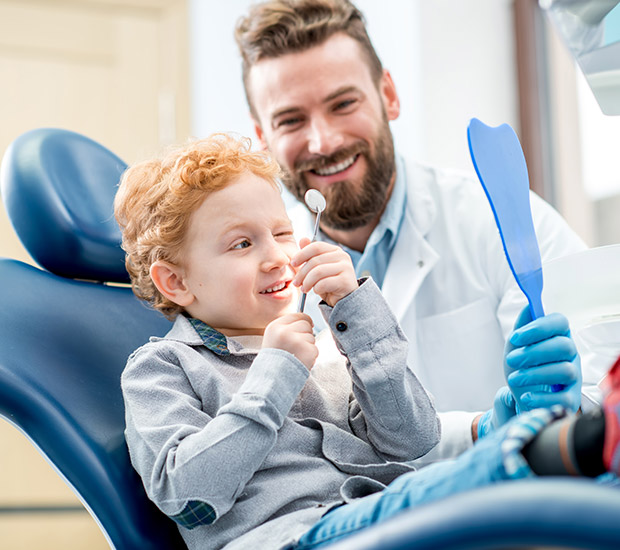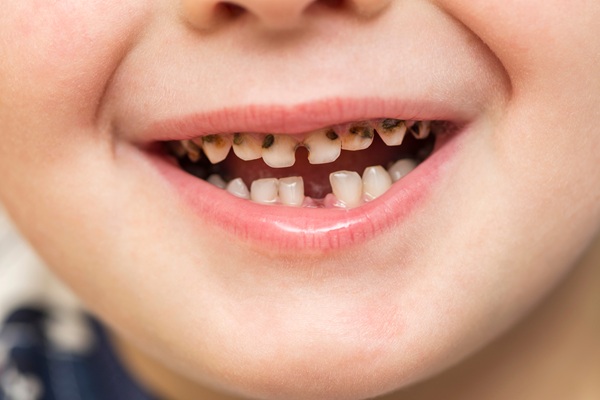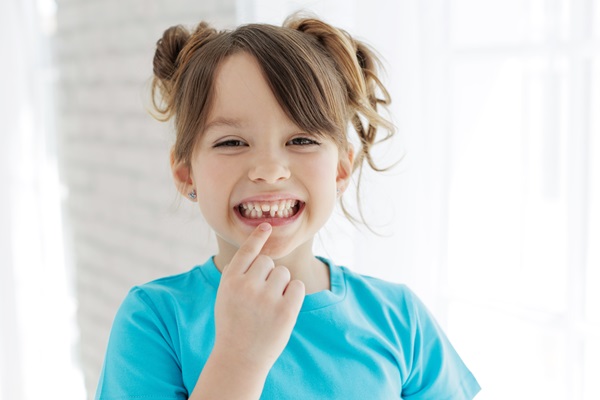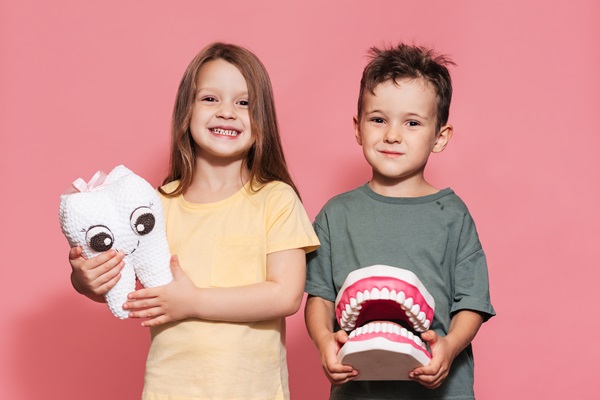Dental EducationAsheville, NC
Dental education serves as a foundation for good oral hygiene and health. Pediatric dentists are typically tasked with educating parents and their children about the importance of oral health. Children are curious by nature, and they will be more willing to take good care of their teeth if they understand how important it is.
Dental education should begin when the child is a toddler, and it should continue into their adult years. The most effective way a parent can help to prevent tartar and cavities forming on their child's teeth is by teaching them how sugar leads to tooth decay and what cavities are.
Basics of Dental Education
Here are some of the main things a pediatric dentist will cover when teaching parents and their children about the importance of good oral hygiene:
1. Brushing and flossing
The most important habit a child can develop when it comes to oral hygiene is brushing their teeth at least twice a day per the American Dental Association's recommendations. Parents can give their child's teeth further protection against plaque and tooth decay by teaching their child to brush after every meal. This helps to prevent tooth decay since leftover food particles convert into plaque and acids that damage teeth.
Flossing helps to remove plaque and food particles from teeth surfaces by cleaning between the teeth. Since a toothbrush cannot reach the tight spaces between teeth, dental floss provides a way to clean these tight spaces and remove any debris stuck there. Teaching a child how to brush and floss their teeth can take some time, but it is worth the time it takes since it sets them up for a lifetime of great oral health.
Most children will need their parents to brush their teeth and clean their mouths until they are a few years old. Parents should start brushing their child's teeth and wiping their gums with a clean cloth once their first teeth erupt.
By the time a child reaches the age of 3, a lot more of their teeth should have erupted, and the child should start brushing on their own with a parent supervising. Parents should consider using a timer to ensure their child is brushing for at least two minutes each session. Positive reinforcement like a reward chart can be used to keep the child motivated. Another way to reinforce good brushing habits is by setting a good example for the child to follow.
2. Using the right oral hygiene products
Pediatric dentists also educate parents about the correct type of products they should be using with their children. Children are more likely to swallow toothpaste when brushing, so parents should only use a toothpaste that has age-appropriate amounts of fluoride.
Toothpaste made specifically for children comes in many flavors that can make brushing a lot more fun for children. Once the child's permanent teeth begin to erupt, parents should switch to a toothpaste with a higher concentration of fluoride to protect the child's permanent teeth from decay.
3. Regular trips to the dentistParents can also safeguard their child's future oral health by taking them to a pediatric dentist before their first birthday. Afterward, the child should see a dentist at least two times each year. The benefits of familiarizing a child with a dentist include:
- The child is less likely to develop dental anxiety as an adult
- The pediatric dentist can educate the child about oral hygiene while performing treatments
- Abnormalities detected are addressed early on
- Preventative treatments can be performed to protect the child’s teeth
- Orthodontic issues can be treated early in the child’s life when their jaw is still developing
Importance of Oral Hygiene
The two most common issues dentists deal with are tooth decay and gum disease. Both issues are caused by plaque, bacteria, and acids in the mouth having their way with teeth and gums. Taking good care of the mouth leads to fewer dental issues and improved general health. Call us at 828-254-7291 or visit our Asheville practice to learn more about dental education.
Frequently Asked Questions
Why is dental education important for children?
Dental education helps children to develop healthy habits when it comes to taking care of their teeth at an early age. This often sets the stage for how seriously they take oral hygiene as adults.
Can good oral hygiene prevent dental issues?
Yes. Good oral hygiene limits the time bacteria and acids in the mouth get to wreak havoc on teeth. It can also reverse the early stage of gum disease called gingivitis.
What are the main signs of poor oral hygiene?
People with poor oral hygiene are more likely to have tooth decay or gum disease. Not cleaning teeth regularly also increases the risk of developing stains and discoloration on teeth surfaces.
What happens when a child does not get dental education early on?
Children who do not learn how to take care of their teeth properly are more likely to develop cavities on their teeth. These can lead to toothaches that weaken teeth, leading to them falling out prematurely. As a result, the child's permanent teeth are more likely to have abnormalities as they erupt. The child is also likely to become an adult who takes poor care of their teeth, leading to a lifetime of dental issues.
Can poor oral hygiene lead to an infection?
Yes. Poor oral hygiene leads to cavities – which will expand when left untreated. If the cavity reaches the pulp chamber, the blood vessels and nerve there are exposed to bacteria in the mouth. It is only a matter of time before the tooth becomes infected at that point.





